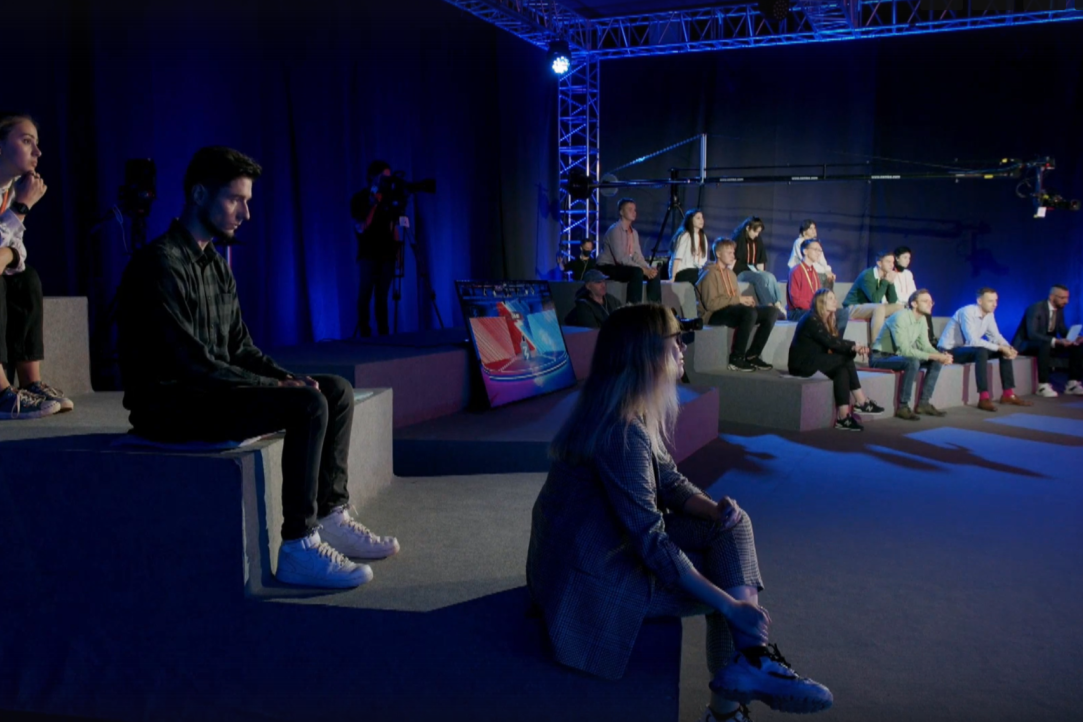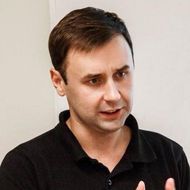‘It Was Interesting to Showcase a Unique Student Project’

Held as part of the Second New Knowledge Marathon, the fourth HSE Science Battles attracted a wide audience. HSE Students Frol Sapronov, Marina Kasyulina, and Vsevolod Nikolsky took part in the competition’s new televised format to demonstrate how to talk about science vividly and in simple terms understandable to any audience.
HSE Science Battles took place at the Science and Technology venue of the 2nd New Knowledge Marathon, a federal educational project organized by the Russian Znanie society. This year, the Marathon was held in a blended format in Moscow, Saint Petersburg, Sochi, Nizhny Novgorod, Vladivostok, and the Republic of Tatarstan on September 1–3. Among its participants was HSE Rector Nikita Anisimov. It is also worth noting that 2021 has been declared the Year of Science and Technology in Russia.
The speakers of the Science Battles included HSE Students Frol Sapronov, a Bachelor’s student in Psychology, Marina Kasyulina, a Bachelor’s student in Fundamental and Computational Linguistics, and Vsevolod Nikolsky, a Doctoral student of the School of Applied Mathematics (MIEM). The event was broadcast online across the country.

Andrey Kozhanov, Director of the Centre for Student Academic Development
Many universities have a tradition of telling the world about their research. In doing so, they encourage their students to use simple language to get their ideas across to people with different levels of awareness. We found it interesting to showcase a unique student project at the New Knowledge venue. HSE University launched the project four years ago with one of our partners, the Polytechnic Museum, as a means of integrating students of the academic track and a format for involving viewers in science.
The theme of the Science Battles was the relationship between scientific knowledge and technologies. For instance, the viewers learned why they don’t always see advertisements on websites, what ‘banner blindness’ is, how we can teach AIs to understand emotions in messages, and what kind of scientific horizons supercomputers can open up to us.

Frol Sapronov, fourth-year student, HSE University
To speak about your research, you have to love what you’re doing and be confident that the results of your work are correct and free of falsifications. If they are, then you don’t have to worry about the structure of your presentation: if you have studied the references, selected the necessary samples and processed the relevant data, then you know what you’re going to say. The only thing you have to do is to get the message across using clear and simple terms. You should think over some good phrases and plan you presentation well in advance. The recipe for success is a combination of the following factors: confidence in your results, a well-prepared presentation, and plain language without too much academic legalese.
All the participants are Science Battle veterans with experience speaking to general audiences. This time, they were asked to give televised presentations about their research to several thousand viewers.

Vsevolod Nikolsky, Doctoral student of the School of Applied Mathematics, MIEM
I spoke about supercomputer code in the Science Battles. I’m working on this topic now, studying the performance portability of GPUs. Nvidia used to be the standard accelerator for high-performance computations, but there has recently been a shortage of hardware on the market and growing competition from AMD. Several AMD-based exaflop supercomputers have been designed and are being built. This makes portable code and related research so important—we need to understand how the code will behave when ported.
The expert panel included Konstantin Fursov, Deputy Director for Science and Education of the Polytechnic Museum and an HSE Leading Research Fellow; Elena Gorbunova, Head of the Laboratory for Cognitive Psychology of Digital Interface Users, and Andrey Kozhanov, a researcher of scientific communications at the HSE School of Sociology. Unlike in the Science Slam and Science Bar Hopping projects, the experts of the Science Battles attend and participate in the discussions of the speeches. This also gives the scientific show an academic context, featuring exchanges of tricky questions and quick-witted answers in between speeches and applause.

Marina Kasyulina, third-year student, HSE University in Nizhny Novgorod
Frankly speaking, I appreciate every opportunity to speak in public. I’m so grateful to the Science Battles team for inviting me to take part on a regular basis. I was impressed by the scale of the Marathon and how well it was organized. This is the first time that I’ve shared a stage with such professionals speaking in front of real television cameras. This latest public-speaking experience was absolutely thrilling!
Marina Kasyulina was named winner of the Science Battles by television audience vote. Her presentation was illustrated how to speak about research vividly and clearly.
Recordings of the event are available on the official webpage of the 2nd New Knowledge Marathon and on the website of the Russian Znanie society.
See also:
From Ingenious Fungi to Post-feminism: HSE University Hosts Season’s Last Science Battles Semi-Final
Season VI of Science Battles at HSE University is entering the homestretch. The June semi-final determined the list of finalists and helped many viewers choose their favourites. This time, young researchers decided to figure out how to conduct a police lineup without destroying a person’s life, as well as how to improve a child’s academic performance without instilling neurotic perfectionism. They also found out that fungi and mould help heal scars and save the environment, and that adherents of post-feminism have very mixed feelings about their own images on TikTok.
From Cultural Appropriation to Prison Jargon: Second Semi-Final of Science Battles Takes Place at HSE University
On March 19, the second semi-final of the fourth season of HSE University Science Battles brought together the topics of cultural appropriation, pharmacological neural networks, prison jargon, and ‘diseases’ of higher education on the same stage. Students from various degree programmes presented their projects in the Community space. Read on to find out more about the performances featured in the semi-finals.
From Hate-Watching to GMOs: Highlights of the HSE Science Battles’ Third Semi-Finals
The fifth season of HSE Science Battles is currently underway, with the Sber office serving as a venue for another stage of the battle. Four speakers fought for a place in the finals by presenting their research in a ‘TED Talks’ format. The HSE News Service reports on highlights from the event, including how to explain to your grandmother that GMOs aren’t dangerous, what font you should use to develop your memory, and who ‘hate-watchers’ are.
Robot Rights and Talking Babies: Discussions at HSE Science Battles
Four young scientists competed in the second semi-final of the fifth season of HSE University Science Battles, which was held at HSE Cultural Centre. What tasks lead students to cheat on exams, how babies learn to talk, whether artificial intelligence is subject to copyright, how to deal with false modesty — each researcher presented their work while the audience and the jury chose a winner to compete for the main prize of the season — an academic travel grant.
HSE Science Battles Wrap Up Third Season
What professions in Russia are considered ‘dirty’? Do computers have empathy? What happens when the brain incorrectly predicts how we feel? The answers to these and other questions were tackled at the final round of the HSE Science Battles, which was held online for the first time this year. Read on to find out which performance was rated highest by the audience and jury and why the Science Battles are a must-see for everyone.


